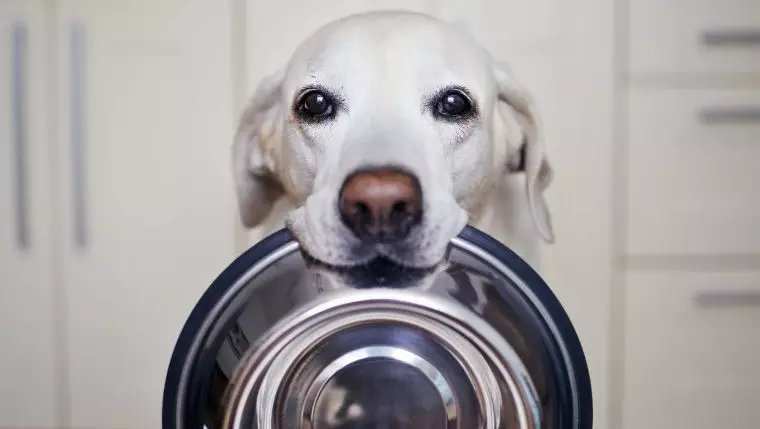When it comes to the relationship between dogs and food, the connection runs deep, going back thousands of years to the domestication of wolves. The influences of a hunter-gatherer lifestyle have lingered in dogs today, leading many to exhibit a strong food motivation. However, while a healthy eagerness for food is normal, it is crucial for dog owners to discern whether their pet’s relentless begging and seemingly insatiable hunger stem from behavioral issues or underlying health concerns. This article explores the various factors contributing to excess hunger in dogs and offers practical guidance on how to address them.
First and foremost, it’s essential to recognize that some dogs simply have a more pronounced enthusiasm for food. They may bark or whine for attention, particularly during mealtime, and many owners interpret this as an indication of hunger. However, a dog that continuously begs for food, even after being adequately fed, may indicate a deeper issue. Understanding the root causes of persistent hunger is vital for ensuring your dog’s health and well-being.
If you suspect that your dog’s appetite is more than just natural food enthusiasm, it is helpful to consider their diet. An imbalanced diet, whether from overfeeding, underfeeding, or insufficient nutrition, can contribute to feelings of hunger. Consulting a pet nutritionist can help tailor a nutritional plan to your dog’s specific needs, ensuring they receive all nutrients necessary for their health.
Even with a nutrient-dense diet, a dog may still feel hungry if they struggle to absorb those nutrients effectively. This issue can arise from various medical conditions including gastrointestinal disorders such as inflammatory bowel disease or exocrine pancreatic insufficiency, where the body fails to properly digest and utilize food. Parasites and even more severe illnesses such as cancer can cause similar symptoms.
If your dog seems perpetually hungry despite receiving what should be adequate nutrition, it’s worthwhile to schedule a comprehensive veterinary examination. Identifying any potential health issues early on can significantly impact your dog’s future well-being.
Adding another layer of complexity, certain chronic medical conditions can also trigger increased appetite. Diabetes, for instance, occurs when the body doesn’t produce enough insulin, leading to an inability to utilize glucose effectively. As a result, affected dogs may continuously signal hunger to their brains as glucose levels remain high yet unusable.
Cushing’s disease, or hyperadrenocorticism, is another condition that can increase appetite. This hormonal disorder causes overproduction of glucocorticoids, exacerbating your dog’s cravings. If diagnosed with either condition, it’s critical to work closely with your veterinarian to find an effective treatment plan that could include medication, dietary adjustments, or both.
Beyond health concerns, behavioral and emotional factors can heavily influence your dog’s interaction with food. Some dogs develop food-seeking behaviors as a result of insecurity or anxiety in their environments. This “feast or famine” mentality can lead them to consume food excessively whenever given the chance.
As an owner, it is crucial to examine your dog’s overall environment. Are there stressors that could be exacerbating their anxiety, such as loud noises or changes in family dynamics? Identifying and mitigating these triggers can support your dog’s emotional stability and promote a healthier relationship with food.
Lastly, the way food is presented can shape your dog’s hunger behaviors. Dogs that receive frequent treats or snacks throughout the day can develop expectations for constant food availability, learning to ‘guilt’ owners into giving them more. Developing a structured feeding schedule approved by a veterinarian and adhering to it can help curb these learned behaviors.
Incorporating training commands such as “wait” can also help establish patience during mealtimes, encouraging your dog to understand that food will be provided at specific intervals rather than on demand.
Understanding your dog’s appetite is key to a happy and healthy life for both your pet and you as an owner. By identifying potential health issues, recognizing emotional triggers, and establishing a consistent feeding routine, you can help address your dog’s insatiable hunger. A comprehensive approach ensures that your canine companion enjoys a diet that supports their overall well-being, while also nurturing the bond you share. Pay attention to the signals your dog sends, and don’t hesitate to consult with professionals when necessary. With the right knowledge and strategies, you can combat excessive hunger and promote a balanced lifestyle for your furry friend.

